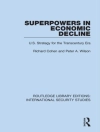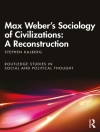Is the appearance of new nuclear weapon states inevitable? Who are the sponsors and apologists of nuclear weapons, and why are others in favour of renouncing them? What are the implications for international security of the increasingly wide use of nuclear energy? How can nuclear threats be defused?
Originally published in 1985, SIPRI”s study suggests some answers to these questions. The book examines the situation in a number of countries of key importance for non-proliferation: the two nuclear-weapon states which have declined to join the 1968 Non-Proliferation Treaty (China and France); a group of nuclear ‘threshold’ states also remaining outside the Treaty (Argentina, Brazil, India, Israel, Pakistan, South Africa and Spain); and a group of states, both developed and developing, which for various reasons have joined the Treaty (Canada, Egypt, South Korea, Sweden, Switzerland and Taiwan).
The focus of the book is on motivations for and against nuclear proliferation. An analysis of these motivations leads the editor to make detailed recommendations aimed at halting the spread of nuclear weapons.
Appendices include a list of nuclear facilities in the countries studied, specifying the degree of their coverage by international controls, and other relevant documentation.












